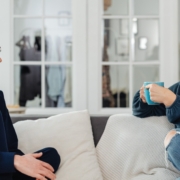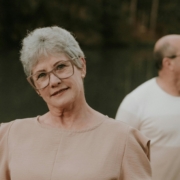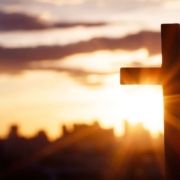Las Vegas: How to Help Kids Make Sense of Tragedy
By: Rachel Doherty | Tweens 2 Teen
Talking to children about tragedy is a tough topic for most parents. In the wake of the Las Vegas shooting, here’s four things to share with kids.
The news reports are full of the unfolding tragedy in Las Vegas. First 20 people killed, then 58, and possibly more to come. More than 500 people injured. So many families are dealing with the aftermath of this and will do for many days, weeks and years to come.
The connected nature of our world flicks images of these tragic events onto television screens and smartphones in an instant. As parents, it can be hard to screen this information from our children. And as they get older, perhaps we should let them see it. This is the world they live in, after all.
“It was an act of pure evil.” – Donald Trump
Tragedy seems to happen so much these days. Whether from hate crimes, terrorism, accidents or the unexplained events like we’re seeing in Las Vegas.
If your kids have heard the news and have questions, or perhaps they’ve seen the images and you know they’re uncomfortable, don’t be afraid to talk.
It doesn’t help kids to be kept in the dark or told that they’re not old enough to understand. Instead, we have to help them make sense of what’s happened and sort the fact from the fiction.
Talking to kids about a tragedy
Most adults tend to go one of two ways when a tragedy strikes. They either feel the need to talk a lot or think they shouldn’t talk at all. The best place is somewhere in the middle.
A conversation about tragedy needs to be intentional. Not hurried or conducted in a busy thoroughfare. While you’re in the car or perched on the side of their bed is perfect. Just a few minutes can help get the facts straight and remind them of their place in the world.
Here’s four things to share during that conversation:
1. Ask what they think happened
Kids may be getting information from many different sources, not all reliable. The news has been changing hour by hour, so it’s important for kids to know whether what they think happened is true or false.
You don’t need to give them every detail. Check what they know, what’s right and wrong and then answer their questions. Keep it as simple as possible.

2. Life is for living, not worrying about dying
There are so many great adventures in life that we miss out on if we think too much about dying. None of us know how long our life will be, but we all get to choose what we make of today. We get to choose if we spend it having fun or living in fear.
Many of the people killed in Las Vegas were enjoying a music festival. They were having a fabulous time, and we shouldn’t let the fear of what might happen to stop us from enjoying our life too.
“When you close your eyes to tragedy, you close your eyes to greatness.” – Stephen Vizinczey
3. It’s normal to feel sad and scared when a tragedy happens
The best thing we can do is notice that we’re feeling that way and talk to someone about it. These feelings will be stronger if we have a connection to the event. If we’ve visited Las Vegas, or have family there, or have been to a music festival ourselves.
Feelings are part of being alive and making sense of our world, and strong feelings like fear and sadness tell us that things aren’t right. But these feelings will pass. They’ll disappear quicker the more we share them with other people.
4. We can’t control life
Nobody can stop tragedies like this from happening. So life isn’t something we should try and control. It’s a gift we get on the day we’re born and every day after that is just a further layer of that gift.
The things we can control are how we treat others, and how we care for the people around us. We can control how we see the world. And the people who have the best lives choose to see the beauty around them, not the darkness. They choose to focus on the good, not the bad.
You can come back and reinforce these points as you need to in later days. They’re important truths we all need to hang onto in life. Particularly when challenges or horrible things happen. So touch on them when you need to, but don’t hammer them too much either.
Most kids will take some time to process what they’ve seen and heard. They might come to terms with it, or have more questions or worries. For most kids, they’ll come to you if they need more help, so don’t feel you have to keep checking on them.

Dealing with fears that surface after a tragic event
For some kids, a tragedy won’t be something that passes in a week or two. The negative thoughts can start to embed and develop into fears that impact on their life at a deeper level. If you’re starting to see your child withdraw from things they usually enjoy or act fearful of leaving you, it’s best to get some help.
Some of the fears that can develop for young people after a tragedy are:
A fear of death. The realisation that this life will end one day can be overwhelming. Some kids won’t have realised this before and might struggle to come to grips with it.
A fear of losing family members. The thought of being alone in this world is something that rattles us all. But for a child, the idea that mum or dad might disappear can be frightening.
A fear of leaving home. Most of us see our home as a safe place to be, and kids are no different. Big fears can force them to seek refuge at home and limit their enjoyment of life.
Unexplained fears and worries. Some kids won’t be able to explain why they’re so scared. You might see panic attacks about little things that don’t make sense. Or tears and tantrums might return for children who’s grown out of this stage.
If you see these sorts of fears gaining a foothold in your child’s mind, get help. Make an appointment to see your family doctor or a counsellor. These are thoughts that need unraveling and putting into perspective.
Unfortunately, this won’t be the last tragedy that our kids encounter. Becoming resilient to face these things is an important part of growing up in the 21st century. Our job is to help them see that no-one knows how long our life will run. Each day is a gift we should enjoy and make the most of.
We owe it to every one of those people whose lives were cut short in Las Vegas, and those who have a long recovery ahead of them.
Article supplied with thanks to Tweens 2 Teen.
About the Author: Rachel Doherty helps those living and working with young people, through supervision, coaching, speaking and consulting.









Leave a Reply
Want to join the discussion?Feel free to contribute!